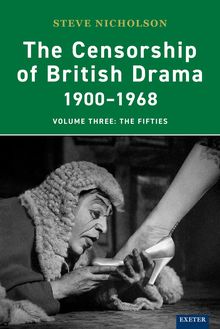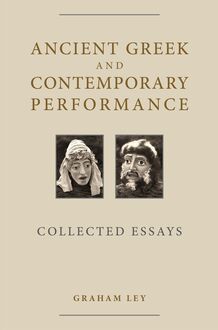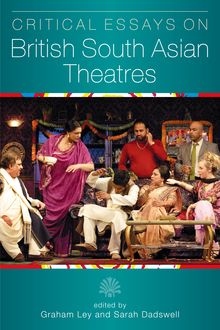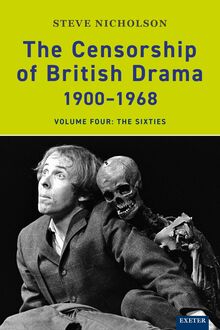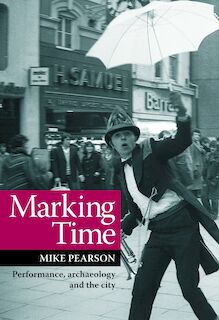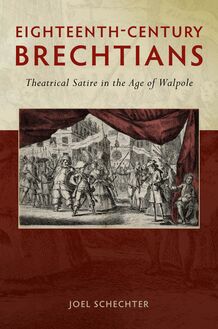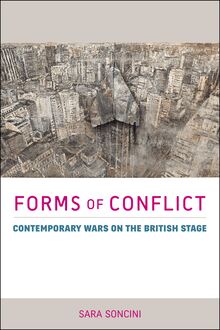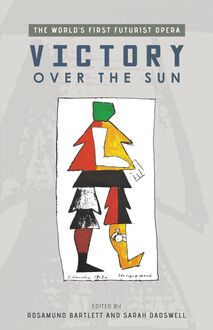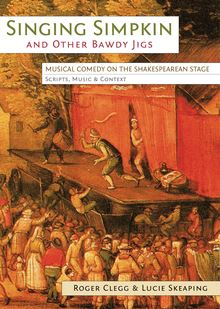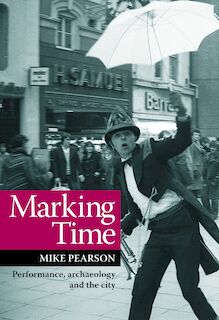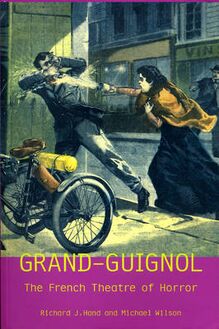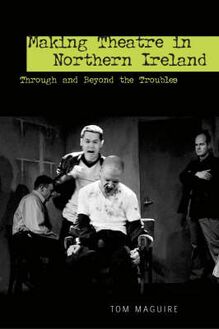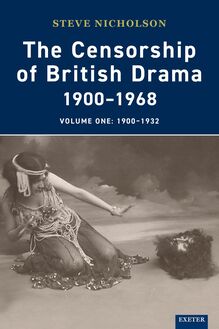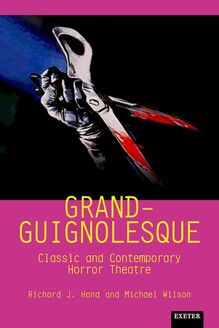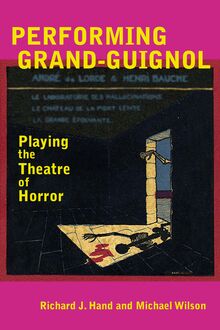-
 Univers
Univers
-
 Ebooks
Ebooks
-
 Livres audio
Livres audio
-
 Presse
Presse
-
 Podcasts
Podcasts
-
 BD
BD
-
 Documents
Documents
-
- Cours
- Révisions
- Ressources pédagogiques
- Sciences de l’éducation
- Manuels scolaires
- Langues
- Travaux de classe
- Annales de BEP
- Etudes supérieures
- Maternelle et primaire
- Fiches de lecture
- Orientation scolaire
- Méthodologie
- Corrigés de devoir
- Annales d’examens et concours
- Annales du bac
- Annales du brevet
- Rapports de stage
La lecture à portée de main
Découvre YouScribe en t'inscrivant gratuitement
Je m'inscrisThe Censorship of British Drama 1900-1968 Volume 1 , livre ebook
Découvre YouScribe en t'inscrivant gratuitement
Je m'inscrisEn savoir plus
En savoir plus

Description
This is the first volume in a new paperback edition of Steve Nicholson's well-reviewed four-volume analysis of British theatre censorship from 1900-1968, based on previously undocumented material in the Lord Chamberlain's Correspondence archives. It charts the period before 1932, when theatre was seen as a crucial medium with the power to shape society, determining what people believed and how they behaved. It uncovers the differing views and the disputes which occurred among and between the Lord Chamberlain and his Readers and Advisers, and discusses the extensive pressures exerted on him by bodies such as the Public Morality Council, the Church, the monarch, government departments, foreign embassies, newspapers, powerful individuals and those claiming to represent national or international opinion. The book explores the portrayal of a broad range of topics in relation to censorship, including the First World War, race and inter-racial relationships, contemporary and historical international conflicts, horror, sexual freedom and morality, class, the monarchy, and religion.
This new edition includes a contextualising timeline for those readers who are unfamiliar with the period, and a new preface.
DOI: https://doi.org/10.47788/LXOK1281
Preface
Acknowledgements
Introduction: Because Lions Ain't Rabbits
Section One: 1900-1918
1. From Ibsenity to Obscenity: Principles and Practice 1900-1909
2. People Who Eat Peas With Their Knife: The Government Enquiry of 1909
3. Cats, Canaries and Guinea Pigs: Principles and Practice 1909-1913
4. A Clique of Erotic Women: The First World War (Part One)
5. The Hidden Hand: The First World War (Part Two)
Section Two: 1919-1932
6. The Dead Men: Principles and Practice
7. No Screams from Rabbit: Horror and Religion
8. Merchandisers in Muck: The Immoral Maze
9. Our Good Humoured Community: Domestic Politics
10. Foreign Bodies: International Politics
Conclusion: A Gentler Process of Prevention
Notes
Select Bibliography
Index
Sujets
Informations
| Publié par | University of Exeter Press |
| Date de parution | 03 mars 2015 |
| Nombre de lectures | 0 |
| EAN13 | 9780859899031 |
| Langue | English |
| Poids de l'ouvrage | 5 Mo |
Informations légales : prix de location à la page 0,5625€. Cette information est donnée uniquement à titre indicatif conformément à la législation en vigueur.
Extrait
-
 Univers
Univers
-
 Ebooks
Ebooks
-
 Livres audio
Livres audio
-
 Presse
Presse
-
 Podcasts
Podcasts
-
 BD
BD
-
 Documents
Documents
-
Jeunesse
-
Littérature
-
Ressources professionnelles
-
Santé et bien-être
-
Savoirs
-
Education
-
Loisirs et hobbies
-
Art, musique et cinéma
-
Actualité et débat de société
-
Jeunesse
-
Littérature
-
Ressources professionnelles
-
Santé et bien-être
-
Savoirs
-
Education
-
Loisirs et hobbies
-
Art, musique et cinéma
-
Actualité et débat de société
-
Actualités
-
Lifestyle
-
Presse jeunesse
-
Presse professionnelle
-
Pratique
-
Presse sportive
-
Presse internationale
-
Culture & Médias
-
Action et Aventures
-
Science-fiction et Fantasy
-
Société
-
Jeunesse
-
Littérature
-
Ressources professionnelles
-
Santé et bien-être
-
Savoirs
-
Education
-
Loisirs et hobbies
-
Art, musique et cinéma
-
Actualité et débat de société
- Cours
- Révisions
- Ressources pédagogiques
- Sciences de l’éducation
- Manuels scolaires
- Langues
- Travaux de classe
- Annales de BEP
- Etudes supérieures
- Maternelle et primaire
- Fiches de lecture
- Orientation scolaire
- Méthodologie
- Corrigés de devoir
- Annales d’examens et concours
- Annales du bac
- Annales du brevet
- Rapports de stage
